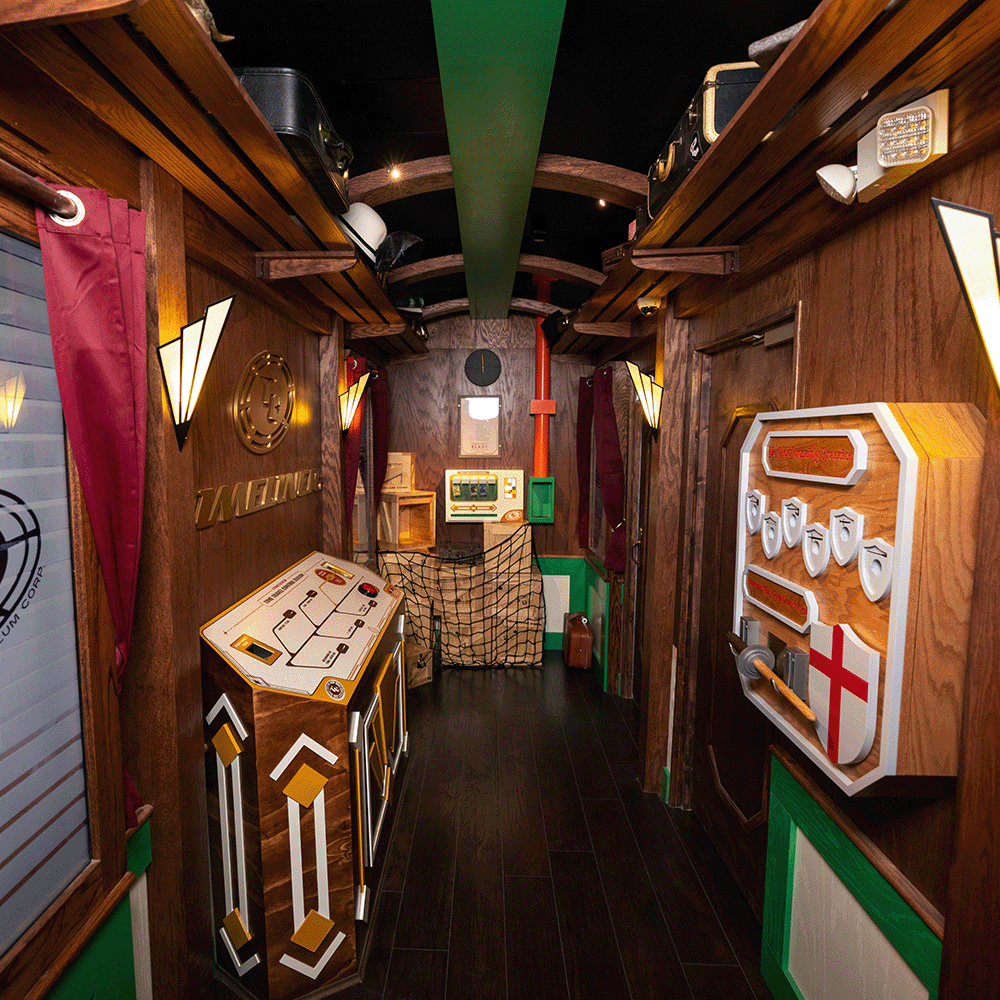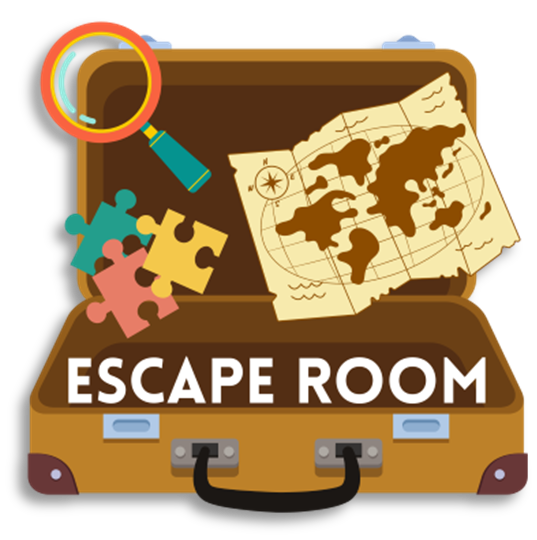Ready for a Challenge? Visit the Best Escape Room in LA for Thrills and Enjoyable
Ready for a Challenge? Visit the Best Escape Room in LA for Thrills and Enjoyable
Blog Article
Dive Into a Globe of Adventure and Problem-Solving in Escape Rooms
Escape spaces have risen in popularity, providing a special blend of journey and cognitive challenge that captivates individuals of every ages. These interactive experiences immerse gamers in themed environments where teamwork and important reasoning are critical to success. From unraveling elaborate historical mysteries to browsing eerie, spine-chilling situations, each area offers a distinctive story that tests your analytic acumen. Whether you're an interested novice or an experienced fanatic, the appeal of these immersive problems bids. Yet what precisely fuels this fascination, and just how can one optimize their experience? The solutions might stun you.
The Increase of Escape Rooms
Escape rooms have actually seen a significant surge in appeal over the previous decade, changing from niche amusement to a mainstream phenomenon. Stemming in Japan around 2007, these interactive puzzle games swiftly captivated audiences worldwide. The immersive experience of being "locked" in a space and working collaboratively to resolve challenges within an established timeframe provides an one-of-a-kind mix of adventure and cognitive challenge.
The increase of escape areas can be attributed to numerous aspects. The interactive nature of retreat rooms supplies a substantial comparison to the digital escapism widespread in digital gaming.
Getaway rooms foster cooperation and interaction, encouraging individuals to merge their skills and expertise (escape room). The constant evolution of problem design and technical integration guarantees that getaway rooms continue to be fresh and difficult, contributing to their sustained appeal.
Types of Escape Room Motifs

One prevalent style is the "Mystery and Investigative" category, where individuals think the duty of investigators entrusted with fixing a crime or uncovering a covert fact. These rooms typically include intricate challenges and narrative-driven difficulties that require eager observation and sensible thinking.
An additional popular motif is "Historical and Experience". Right here, players might locate themselves in ancient Egypt, browsing via a pharaoh's burial place, or during The Second World War, decoding enemy messages. These motifs provide an academic twist, mixing historic facts with appealing gameplay.
For those looking for an excitement, "Scary and Paranormal" getaway rooms provide spine-chilling experiences. Set in haunted houses or abandoned asylums, these rooms rely upon climatic impacts and psychological scares to enhance the stress.
Key Skills for Success
Success in escape rooms hinges on a blend of important abilities that participants have to harness to conquer the diverse difficulties they will run into. Just as important is synergy; retreat areas call for a collaborative initiative, where each individual's toughness are used to take on different challenges and jobs successfully.
Analytical thinking is also important, enabling teams to explore intricate puzzles and establish sensible connections between inconsonant components within the space. Time administration is a more necessary, as the fixed period of escape area experiences requires effective appropriation of time to various tasks and problems.
Flexibility and flexibility need to not be overlooked. When first plans falter ensures that teams can dynamically react to developing difficulties, the capability to pivot strategies. Last but not least, preserving a calm attitude under pressure help in clear thinking and protects against the onset of stress-induced errors. Mastery of these abilities collectively enhances the probability of a successful getaway.
The Psychology of Problem-Solving
Recognizing the psychology of analytical is critical for navigating the intricate challenges presented by getaway areas. Problem-solving is a cognitive process that entails recognizing an issue, generating feasible options, assessing them, and after that performing the best training course of activity. Cognitive psychologists have actually long researched this procedure, recognizing various phases such as issue recognition, structuring the issue, and using heuristics or algorithms to find remedies.
Escape rooms develop an environment where participants should rapidly relocate through these More Help cognitive phases under stress. The high-stakes, time-constrained nature of escape areas can induce a state of heightened stimulation, which can either boost or harm cognitive efficiency relying on the individual's tension action. The Yerkes-Dodson Regulation suggests that modest stress degrees can enhance problem-solving capacities, whereas too much anxiety can be detrimental.
Additionally, escape rooms often call for collaborative analytical, leveraging group characteristics to improve cognitive procedures. Theories of social cognition highlight the importance of communication, shared mental designs, and cumulative trouble representation. Efficient teamwork can bring about more ingenious remedies and diverse viewpoints, highlighting the role of cognitive and social psychology in these immersive experiences. Understanding these mental principles can substantially improve one's capacity to address intricate puzzles efficiently.
Tips for First-Timers
Starting your first retreat room journey can be both daunting and thrilling. To enhance your experience, it is important to approach it with a method. Assemble a team with diverse skills. A mix of logical thinkers, imaginative minds, and great communicators is suitable. The more differed the ability, the better equipped you'll be to take on various kinds of challenges.
Interaction within the team is vital. Share findings and insights immediately, as one person's exploration can be the missing piece one more requirements. Prevent passage vision; if a challenge appears impossible, pass it on a colleague to acquire a fresh viewpoint.
Time administration is additionally important. Watch on the clock and designate your time wisely. If a specific challenge is taking in too much this link time, it may be sensible to carry on and go back to it later.

Conclusion
Retreat spaces provide a special mix of adventure, cognitive difficulty, and immersive storytelling, making them a preferred selection for both home entertainment and ability growth. The psychological benefits acquired from these experiences extend beyond the escape area, promoting enhanced interpersonal abilities and cognitive features.
The consistent evolution of problem layout and technical assimilation ensures that retreat areas remain fresh and difficult, adding to their sustained appeal. - best escape room
Equally crucial is teamwork; retreat rooms call for a joint initiative, where each participant's staminas are used to take on numerous puzzles and jobs successfully.
Time administration is a further important, as the dealt with period of escape area experiences necessitates effective allocation of time to various jobs and challenges.
Understanding the psychology of problem-solving is crucial for navigating the complex challenges offered by getaway spaces.Furthermore, retreat rooms frequently need collaborative problem-solving, leveraging team characteristics to improve cognitive procedures.
Report this page